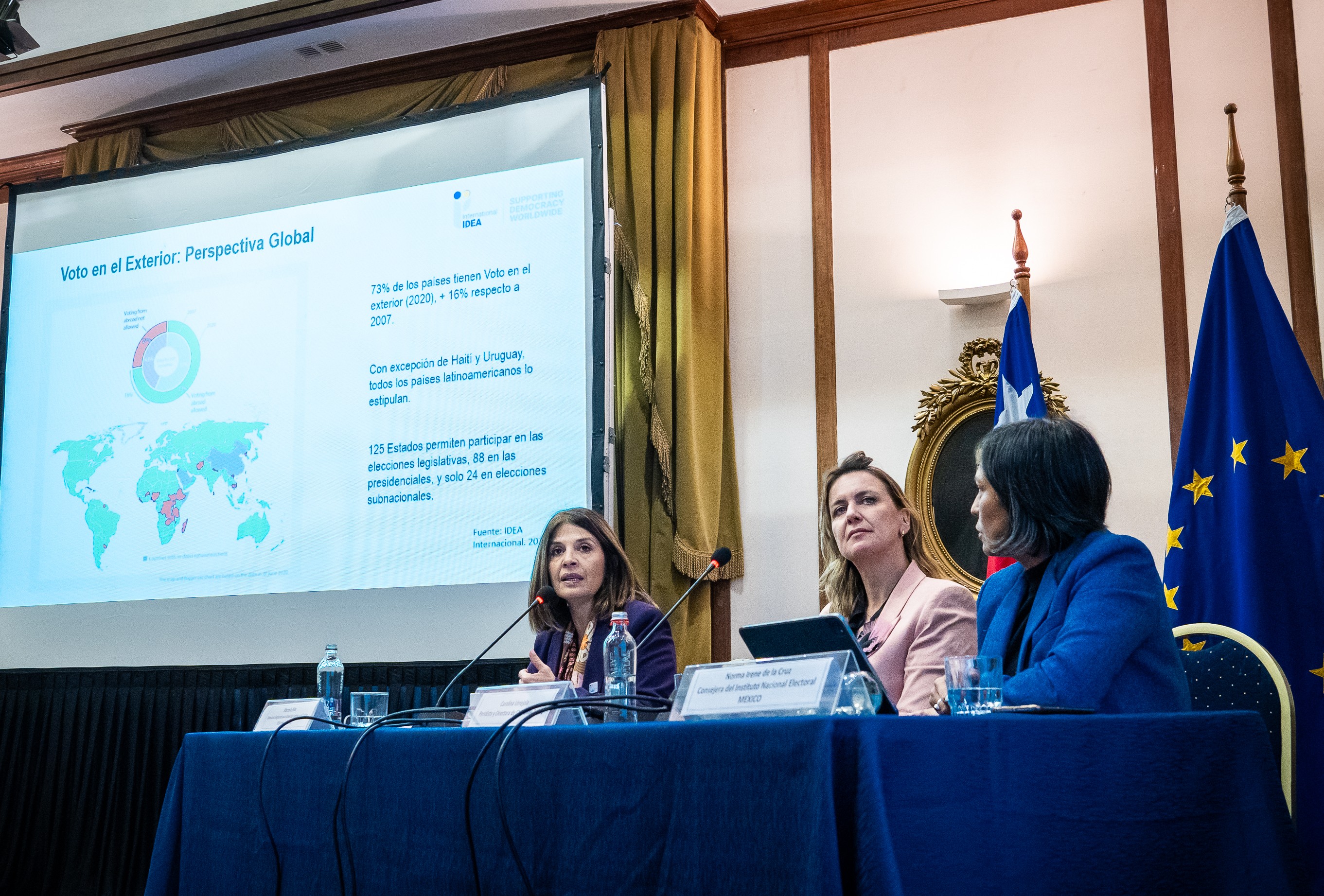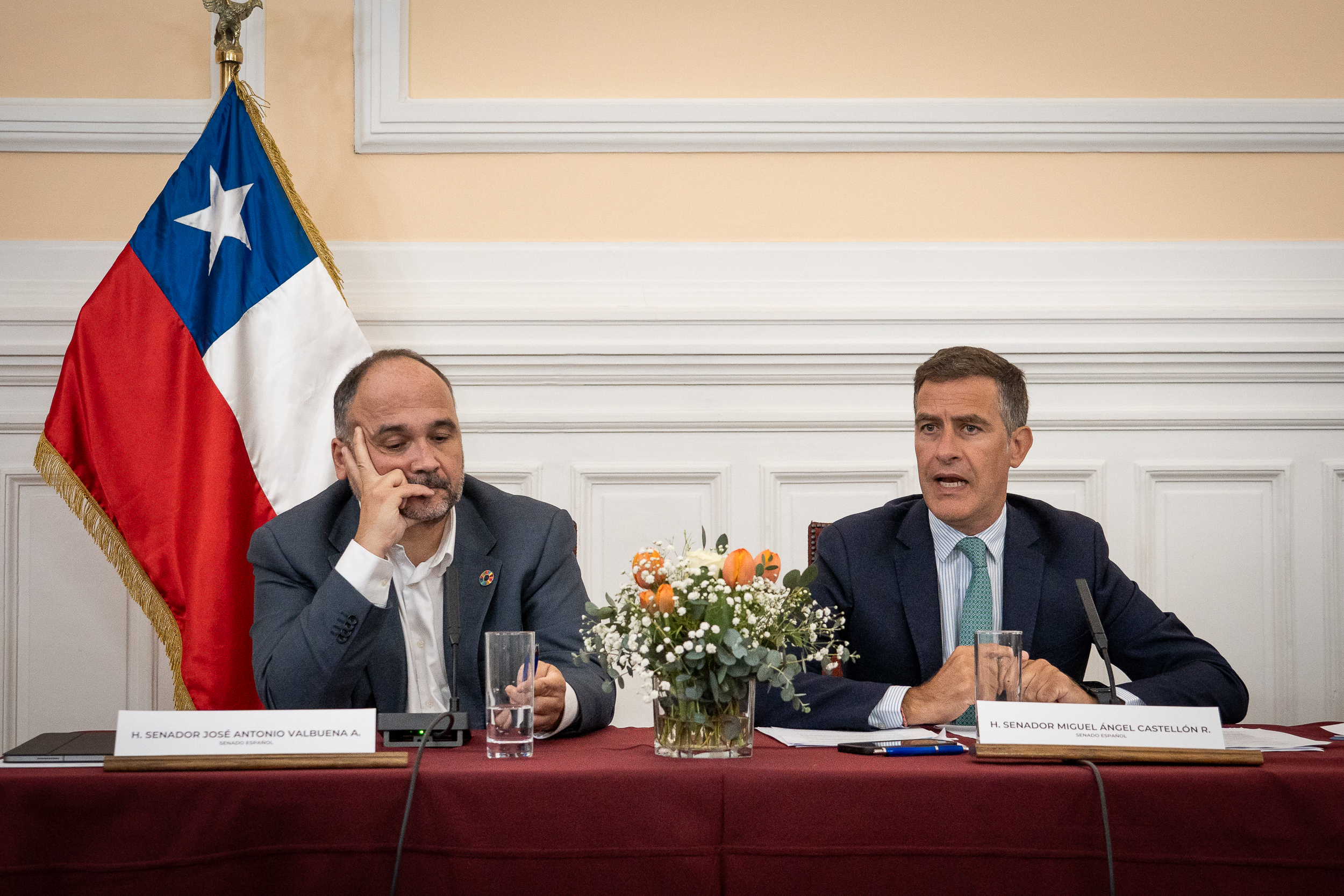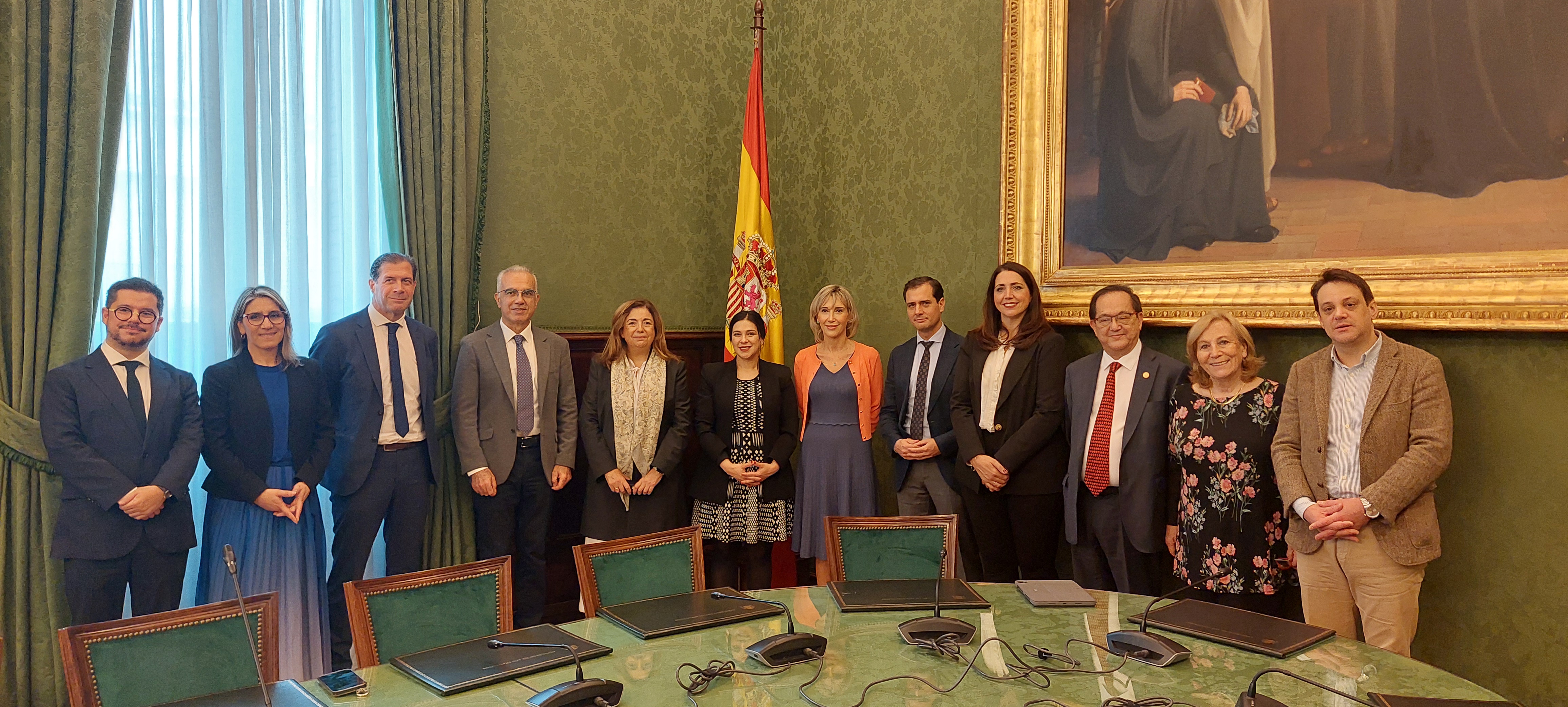On 23–24 June 2014 International IDEA hosted a round-table event entitled ‘Democracy Assistance and Results: Debates and Constructive Reflection’ in order to facilitate open and forward-looking discussions on the challenges (and opportunities) of applying results-management approaches to democracy assistance—that is, support to parliamentary development, electoral processes, political parties/party systems, civil society, media development and so on.
Búsqueda
Region
Country
Type
The final results of the elections which culminated in the second round re-election of Dilma Rousseff of the Workers’ Party (PT) as president of Brazil, illustrates the most striking feature of the 2014 electoral cycle: These were the most competitive presidential elections in the democratic era. The difference between Rousseff and her opponent, Aécio Neves, of the Brazilian Social Democratic Party (PSDB), was just more than 3 per cent: 51.64 per cent and 48.36 per cent respectively.
LIMA — International IDEA will join more than 30 experts from the Latin America region and other countries to meet with representatives of Peru’s electoral system and discuss electoral systems at the second International Congress on “Representation and National and Regional Political Participation” between 27-29 November 2014.
LIMA — IDEA Internacional reunirá a más de 30 expertos de la región latinoamericana y otros países para encontrarse con representantes del sistema electoral peruano y debatir sobre los sistemas electorales en el segundo congreso internacional sobre “Representación y participación política nacional y subnacional” entre el 27-29 de noviembre 2014.
The Central Electoral Board (JCE) of the Dominican Republic celebrated a gala event in Santo Domingo, 11 November, acknowledging the contribution of different individuals to the development and consolidation of democracy, and the institutionality of the Dominican Republic over the past few decades.
La Junta Central Electoral de República Dominicana realizó una gala de reconocimientos el pasado 11 de noviembre para resaltar el aporte de diferentes personalidades al desarrollo y consolidación de la democracia y la institucionalidad de la República Dominicana en las últimas décadas.
Scholars in the fields of local democracy, decentralization and good governance will gather today to discuss tools and mechanisms featured in two new publications: The Imperative of Good Local Governance: Challenges for the Next Decade of Decentralization and Democratic Local Governance: Reforms and Innovations in Local Democracy in Asia.
Organized criminal networks are global phenomena that distort local and global economic markets, bring violence and blur the role of the state in providing basic services, all in the interest of increasing their wealth.
The main weapon used by such networks is corruption of politicians and of state institutions. This undermines the basic principles of democracy and puts the state at the mercy of illicit economic interests.
NEW YORK — The International Institute for Democracy and Electoral Assistance (International IDEA), the Netherlands Institute for Multiparty Democracy (NIMD) and the Netherlands Institute of International Relations (Clingendael) today will conduct a book discussion about a publication that provides insights into the world of organized crime in Latin America and how these networks corrode democratic politics across the region.
Countries with lower levels of service delivery tend to have one thing in common: they have little or no provisions for effective sanctions or rewards.
En los últimos años, se registra un aumento del repertorio de manifestaciones sociales, que muestran que la política importa, aunque de una manera diferente a la tradicional.
Esta obra colectiva presenta una selección de estudios de democracia directa y participativa en América Latina.
What is a constitution? Why do constitutions matter? How are constitutions made? International IDEA’s Constitution Building Programme is pleased to announce the release of new and upgraded, easy-to-understand, jargon-free initiatives which respond to these questions, for specialist and non-specialists audiences alike.
Declaracion: Las opiniones expresadas en este comentario son las del miembro del personal. Este comentario es independiente de intereses nacionales o políticos específicos. Las opiniones expresadas no representan necesariamente la posición institucional de International IDEA, su Consejo de Asesores o su Consejo de los Estados Miembros.
A limitation clause enables constitutional rights to be partially limited, to a specified extent and for certain limited and democratically justifiable purposes, while prohibiting restrictions that are harmful to democracy by reason on their purpose, nature or extent.
In recent years, and under the influence of new telecommunications and social media, citizen movements have emerged as an alternative to political party membership for citizen participation in democratic decision-making processes.
The use of information technologies in elections is not new. However, the introduction of open source software in election technology is a relatively new concept, and it has not so far been widely adopted.
In Tunisia, June 2014, International IDEA held a needs assessment workshop for representatives from eight civil society organizations. It focused on the importance of electoral observation and how their work can better include a gender focus.
On 26 October, the Tunisian people held their first-ever democratic and multiparty elections to elect the People’s Assembly legislature. In October 2011 Tunisia held elections to elect a constituent body (the National Constituent Assembly) mandated to deliver a democratic social contract after decades of an oppressive rule, and to fill in the legislative function for a transitory period only.
International IDEA and The Carter Center, in collaboration with the Electoral Assistance Division of the UN Department of Political Affairs, have co-organized a launch of two publications on obligations and standards for assessing electoral integrity.
NEW YORK—The International Institute for Democracy and Electoral Assistance (International IDEA) and The Carter Centertoday will launch two publications that break new ground on reviewing and assessing legal frameworks for elections.
International IDEA Secretary-General Yves Leterme, and The Carter Center CEO Mary Ann Peters will present the publications at the United Nations headquarters and discuss their conceptualization and purpose.


